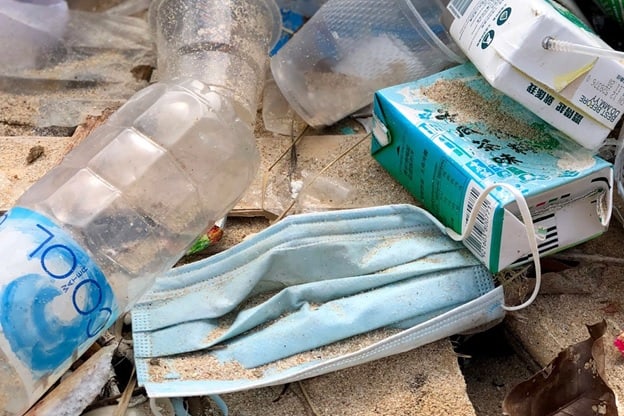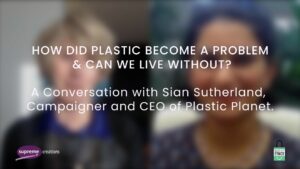The Environmental Dangers of Single-Use Masks
The UCL Plastic Innovation Hub have released a document outlining the dangers of employing single-use face masks as part of a COVID-19 exit strategy. They state that if the government stipulates the usage of reusable face masks as opposed to single-use ones they will reduce the risk of ‘66 tonnes of contaminated plastic mask waste’ adding to the household waste stream, and would therefore reduce the climate change effects associated with single-use plastic waste.
Single-use facemasks are medical grade protective items, necessary for those working on the front line or in a hospital environment. In these such environments the masks can be disposed of properly and safely, by being segregated and then incinerated. There is no such system in place for the general public who are using them, and therefore thousands of masks will be disposed of in places like the street which not only causes issues of contamination, but also causes environmental issues.
Surgical masks are traditionally made from several layers of non-woven polypropylene. This is an ultra-fine particle-blocking material, a thermoplastic, which therefore means that the masks fall under the category of a single-use plastic. The UCL study suggests that ‘If every person in the UK used one disposable surgical mask each day for a year, this would create over 128,000 tonnes of unrecyclable plastic waste (66,000 tonnes of contaminated waste and 57,000 tonnes of plastic packaging’. ‘Overall, the comparative study shows that, from an environmental perspective, using a higher number of reusable face masks in rotation to allow for machine washing is more favourable than using single-use face masks’.
What makes plastic so dangerous is its inability to fully decompose. Plastic will never completely biodegrade, and instead will just be broken down into much smaller pieces – or micro-plastics. These, as well as larger macro-plastics, make their way into the watercourse, and end up in our rivers, canals and oceans. With over two thirds of the planet covered by ocean, home to hundreds of thousands of species, these plastics pose a threat to those which inhabit these waters.
Over 300 million tonnes of plastic are produced every year; 50% of which are single use. With no adequate way for the public to dispose of these single-use plastic masks, it is reccomended by the Government, researchers at UCL and Bags of EthicsTM , that the general public use a fabric, reusable face covering instead. This will help retain supplies of medical grade masks which are much needed by healthcare professionals at this time, help avoid contamination from masks which are not disposed of properly, and also limit the environmental impact of the COVID-19 outbreak.
At Bags of EthicsTM we have created a reusable face mask that is washable, suitable for sensitive skin, from organic certified cotton, printed with REACH compliant non-toxic inks, containing no single-use plastic. It is made from raw materials from our accredited partners in India with a 90% female work force, assembled in the UK. All whilst preventing the spread of viruses.
For more information and to hear more about the science behind our masks, head to our website, https://bagsofethics.org/reusable-face-mask/ and to shop our masks, head to https://bagsofethics.org/product-category/face-masks/.
Bags of EthicsTM





